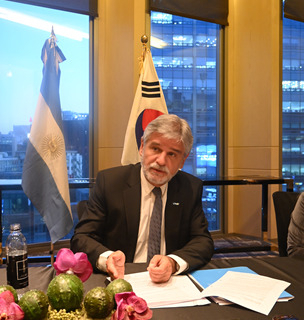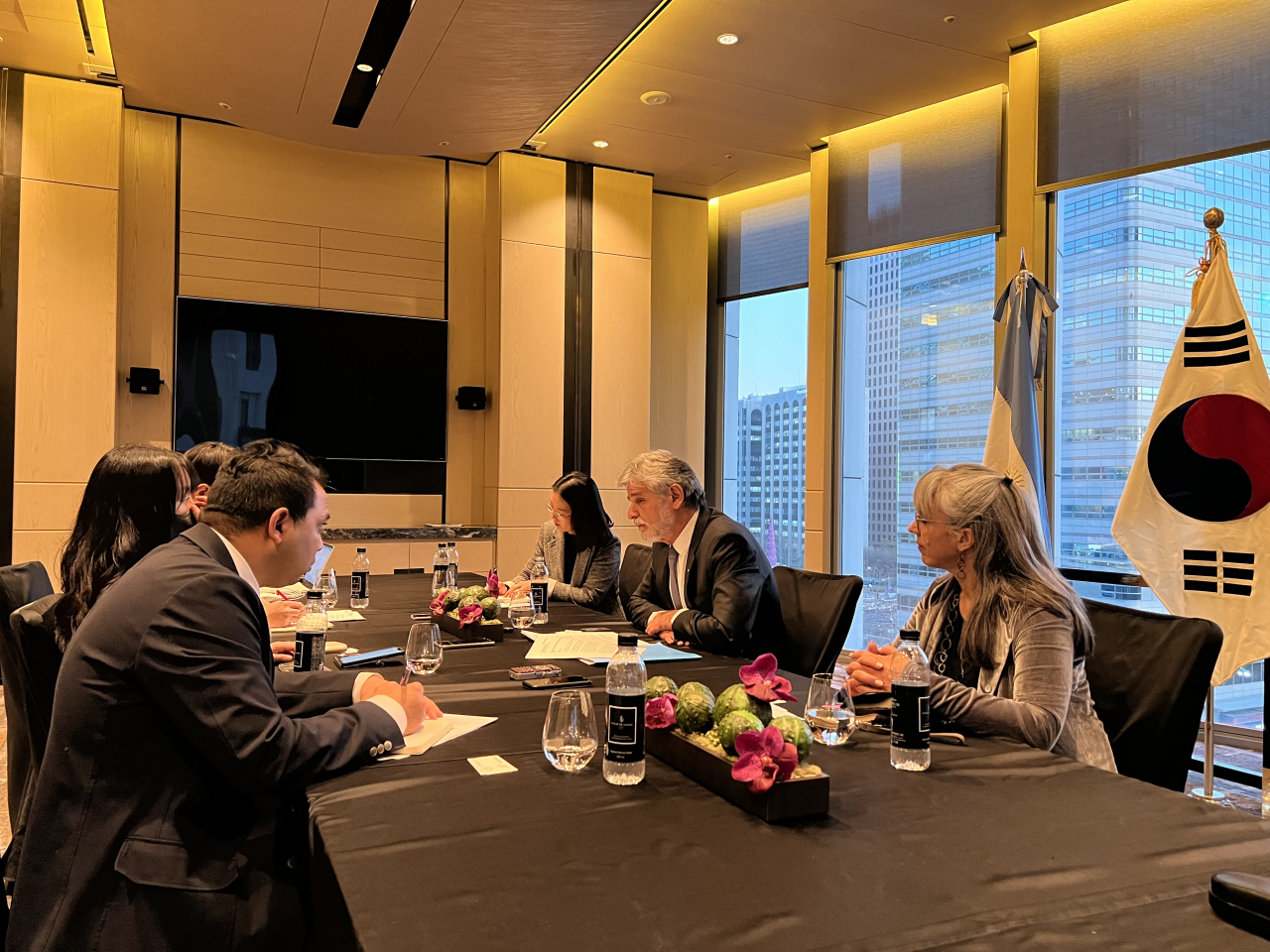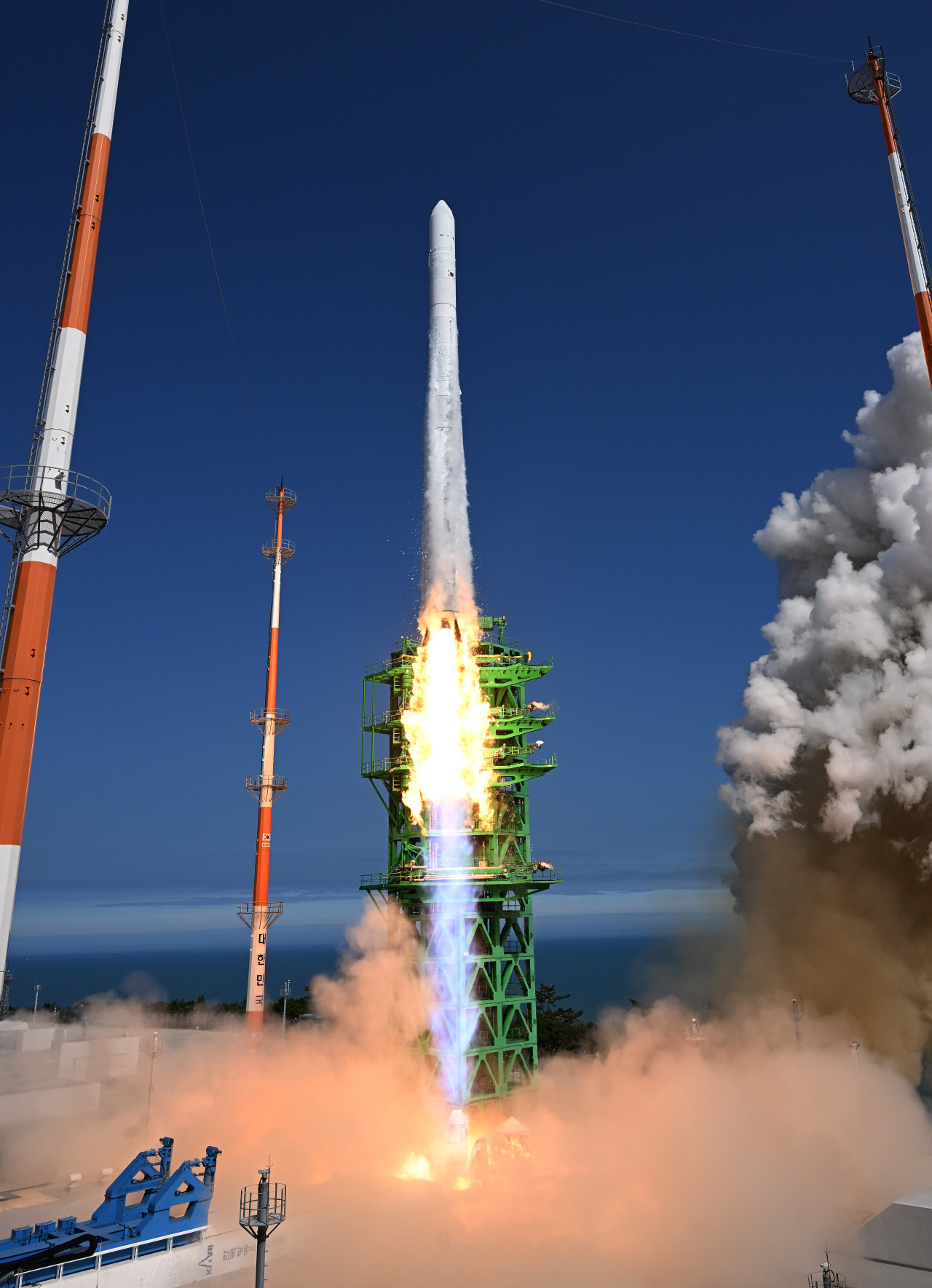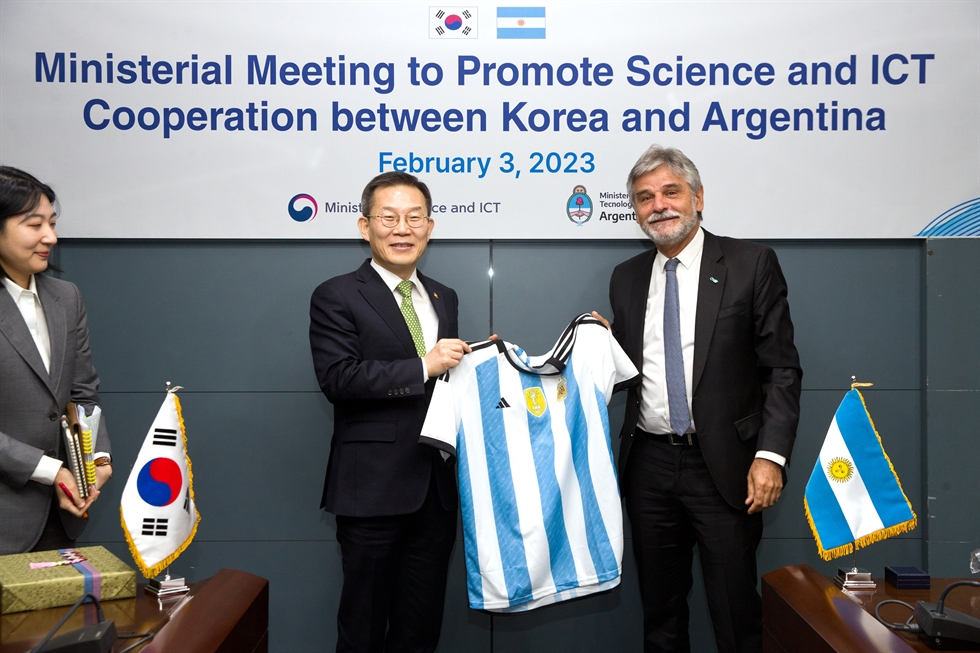Argentina seeks stronger science, tech cooperation with S. Korea
Science minister hopes to boost bilateral cooperation in space, nuclear power, biotech, nanotech, lithium
By Sanjay KumarPublished : Feb. 7, 2023 - 14:47

Daniel Filmus, Argentina's minister of science, technology and innovation, emphasized the importance of expanding science and technology cooperation with South Korea on Friday.
Filmus identified space, nuclear power, biotech, nanotech and lithium as key areas in which his country could work with Korea, citing his meeting with Korea's Science and ICT Minister Lee Jong-ho and the signing of a memorandum of understanding as a significant takeaway.
The memorandum allows Argentina and Korea to intensify cooperation in mining, agro-industries, green hydrogen production, climate issues, aerospace, biotechnology and nanotechnology.
He explained the Argentine government’s ambition to transform Argentina into a country that produces and exports products with value based on science and technology, not just a country that exports raw materials.
"There will be areas where Korea has developed more than Argentina, and conversely, there will be areas where Argentina can transfer technology to Korea," Filmus told The Korea Herald.
"If Argentina and Korea work together, we will achieve common development," he highlighted.
He also hoped Argentina and Korea would make use of a law passed recently in Argentina to increase governmental investment in science by 2030.

Filmus cited Argentina’s National Plan for Science, Technology and Innovation 2030 to promote and consolidate a path for the energy transition.
"This is where our lithium research agendas come in," he said.
Asked how Korea can cooperate with Argentina in space technology, Filmus said Argentina was the only country in Latin America that has independently developed communications satellites and Earth observation satellites.
"South Korea uses X-band satellites, and Argentina uses L-band satellites, there are aspects that can complement each other," Filmus stressed, hoping to share satellite images.
He said that Argentina was planning to build several satellites and was pursuing a project to build a launch pad.
"Given Korea's recent achievements in satellite and aerospace, I think there is a lot of room for cooperation," he said.
"Satellite launch pads will be located in the southern Atlantic region, so location conditions could benefit South Korea," he added.
Latin American countries recently formed the Latin American and Caribbean Space Agency, and the first general meeting is scheduled to be held in Mexico this year.
The president of the Korea Aerospace Research Institute expressed his willingness to attend, according to Filmus.
"Korea will be able to cooperate together here as well," Filmus said.

On nuclear energy cooperation with Korea, Filmus said that Argentina exported accelerators for boron neutron capture therapy to the Korea Institute of Nuclear Medicine and had been negotiating on issues such as industrial cooperation for developing radioactive isotope production.
"Korea is participating in the International Thermonuclear Experimental Reactor, or ITER, a global fusion project, and has also developed a nuclear fusion device, the KSTAR. The Korean side has shown interest in isotope separation technology for lithium-6 and lithium-7 related to nuclear fusion.
"It will be possible to cooperate with Korea," the minister said.
Governments hope fusion power will become a new source of nuclear energy, as it would be fueled with relatively common elements, and come without many of the risks associated with the nuclear fission that is used for power generation today.
The Korea Atomic Energy Research Institute has made a lot of progress on small module reactors for fission power, and Argentina also plans to operate its own SMR, named "Carem," from 2027.
"Since SMR is being considered as a major alternative to (other) nuclear power to cope with climate change worldwide, cooperation in this field will also be significant," said Filmus.
According to Filmus, Argentina and Korea agreed to promote research support projects, exchanges, and doctoral-level researchers from both countries during their meeting with Minister of Science and ICT Lee Jong-ho.
"We can have exchanges in the field of energy transition."
"Lithium and hydrogen play a big role in the energy transition, but nanotechnology is also important," he said.
Sharing his views on cooperation in the lithium area, Filmus stressed the need to promote projects on eco-friendly mining techniques not only with Posco, but also with other companies and researchers in Korea.
"We want to collaborate on mining techniques in a way that does not harm the environment as much as possible," Flimus emphasized.
"There is a lot of interest in creating added value for lithium, and one of our goals is to have our own technology related to lithium production. "Many Korean companies are looking forward to entering Argentina to produce lithium batteries," he said.

Argentina is interested in a rapid energy transition, including e-mobility in the automotive industry, and the production of electric vehicles with batteries produced in Central and South America, according to Filmus.
Meanwhile Filmus thanked the Korean Minister of Science and Technology for congratulating Argentina on winning the World Cup in Qatar.
"Korea was just as happy about Argentina winning the World Cup in Qatar. I was very grateful because the Korean people and the government seemed to be congratulating us,"
"It was meaningful that everyone in Korea congratulated Messi on such a special finish," he said.



















![[Today’s K-pop] Treasure to publish magazine for debut anniversary](http://res.heraldm.com/phpwas/restmb_idxmake.php?idx=642&simg=/content/image/2024/07/26/20240726050551_0.jpg&u=)